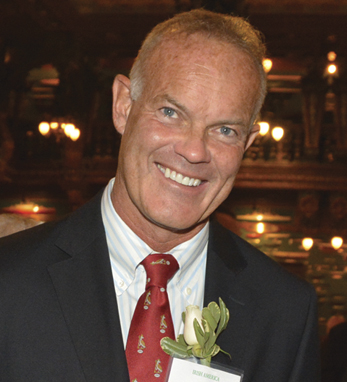
John G. Kennedy
Dr. John G. Kennedy is the assistant attending orthopedic surgeon at the Hospital for Special Surgery’s Department of Orthopedic Surgery, as well as assistant professor of orthopedic surgery at Weill Cornell Medical College. Kennedy also founded and co-chairs the International Congress on Cartilage Repair of the Ankle, a multinational think tank instrumental in changing cartilage treatment strategies around the world.
A native of Dublin, Kennedy was a big sports fan as a child. He went on to compete at national and international levels in track, rugby, fencing, and water skiing. His medical career stretches over 25 years and is buttressed by a commitment to teaching, researching, and administering quality care dedicated to sports injuries of the lower limbs.
His interest in basic science research was initiated as a medical student at the Royal College of Surgeons. As a result, in his intern year he began his first post-doctoral thesis investigating the effects of oxygen-free radical scavengers on tourniquet induced ischemia. This formed the basis of his M.M.S. Following this, he continued to be involved in basic science at the Enders Laboratory at Harvard Medical School under Dr. Melvin Glimcher, where he defended his Masters in Surgery thesis on new composites in bone regeneration. Shortly after that, he was instrumental in setting up a basic science laboratory at University College Dublin as part of his role as senior lecturer in orthopedic surgery.
Since his time at H.S.S., Kennedy has been involved in several basic science investigations principally involving cartilage regeneration, but also involving biomechanics and biological augmentation of healing processes, having published over 190 peer-reviewed articles in addition to countless podium presentations and other citations of his research.
Kennedy’s goal in both clinical and basic science research is to establish H.S.S. as a world leader in ankle cartilage regeneration and arthroscopy. To this end, Kennedy’s office has many fellows visiting and collaborating from numerous international universities. “The world is getting to be a smaller place. Medical problems are universal but often were approached in a regional manner. International collaboration, sharing knowledge for the common good is truly the only way forward,” he says.
As part of the international collaboration between Ireland and the U.S., Kennedy recently received an honorary degree from the faculty of Sports and Exercise Medicine in the Royal College of Surgeons. This was in part due to the pipeline of medical students and residents that travel from the R.C.S.I. to his office in New York each year to experience the different medical culture and collaborate in innovation between the two countries.
His approach to innovation is that of a collaborator. “If I have had any success it is because of those who have taught me well,” he says. “My parents, my school teachers and my college professors all have left their mark. I remember my mentors in surgery every day I operate.”
Of his strong connections to Ireland, he knows he is like so many others. “Ireland has a deep and rich history of medical excellence and innovators. That legacy has been supported and advanced by massive outpourings of support from Irish communities at home and abroad who have allowed Irish doctors and scientists to achieve success,” he says. “I am blessed to have a great family, great friends, and be Irish!” ♦
